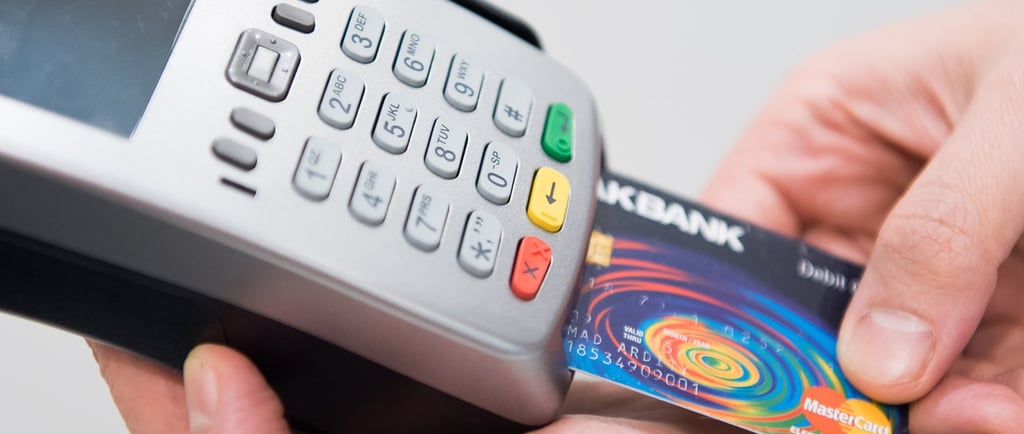How to Improve Your Credit Score Fast: Practical Steps for Quick Results
This article offers actionable strategies for improving your credit score quickly and effectively. Learn how to understand your credit report, correct errors, manage debt, and adopt healthy credit habits. By applying these practical steps, you'll see noticeable improvements in your credit score, which can help you secure better loan terms, lower interest rates, and greater financial opportunities.
PRACTICAL TIPS


Introduction
Your credit score is one of the most important numbers in your financial life. It affects your ability to get loans, credit cards, and even rent an apartment. A high credit score can lead to better interest rates and financial opportunities, while a low score can limit your options. If you need to boost your credit score quickly, there are proven strategies you can implement to see fast results. This article will guide you through practical steps to improve your credit score and set yourself up for long-term financial success.
1. Understand Your Credit Report
The first step in improving your credit score is understanding what’s on your credit report. Request a free copy from major credit bureaus like Equifax, Experian, or TransUnion. Review the report carefully to identify any errors, such as incorrect account information, late payments that were actually on time, or accounts that don’t belong to you. Disputing these errors can result in a quick boost to your score.
Moreover, understanding the factors that influence your score—payment history, credit utilization, length of credit history, new credit inquiries, and credit mix—can help you focus on the areas that need the most improvement. By targeting the specific elements impacting your score, you can develop a more effective credit improvement strategy.
2. Pay Bills on Time
Your payment history accounts for 35% of your credit score, making it the most critical factor. Late payments can have a significant negative impact, while consistent, on-time payments can steadily improve your score. Set up automatic payments or reminders to ensure you never miss a due date.
If you have missed payments in the past, catch up as soon as possible. Some creditors may be willing to remove late payment records if you demonstrate a history of timely payments afterward. The sooner you start paying on time, the faster you'll see improvements in your score.
3. Reduce Your Credit Utilization Ratio
Credit utilization—the amount of credit you're using compared to your credit limit—is the second most important factor, accounting for 30% of your score. Aim to keep your utilization below 30%, and ideally under 10% for the best results. For example, if you have a credit limit of $1,000, try to keep your balance below $300.
Paying down your balances is the most direct way to reduce your utilization. However, you can also ask for a credit limit increase from your creditors. If approved, this raises your available credit, lowering your utilization ratio without requiring you to pay off more debt immediately.
4. Avoid Opening New Credit Accounts Unnecessarily
While having a mix of credit types can benefit your score, opening multiple new accounts in a short period can hurt it. Each new credit application triggers a hard inquiry, which can temporarily lower your score. Only apply for new credit when absolutely necessary, and focus on managing your existing accounts responsibly.
Additionally, keeping older accounts open can help improve your credit history length, another important factor in your score. Even if you no longer use certain credit cards, keeping them active can positively impact your overall credit profile.
5. Consider Debt Consolidation
If you have multiple high-interest debts, consolidating them into a single loan with a lower interest rate can simplify your payments and reduce your overall debt. This can help you pay off debt faster, improve your credit utilization, and boost your score.
Balance transfer credit cards or personal loans are popular debt consolidation options. However, it’s crucial to maintain discipline with new credit after consolidating to avoid falling into more debt.
6. Monitor Your Credit Regularly
Regularly monitoring your credit can help you track your progress and quickly identify any suspicious activity or errors that could negatively affect your score. Many credit monitoring services offer alerts for changes to your report, helping you stay proactive in maintaining a healthy credit profile.
Using these tools, you can also see how different actions—like paying down debt or increasing your credit limit—impact your score over time. This insight can guide your credit improvement efforts more effectively.
Conclusion
Improving your credit score doesn’t have to be a slow process. By understanding your credit report, paying bills on time, reducing your credit utilization, and avoiding unnecessary new accounts, you can see significant improvements in a short time. Consistent, responsible credit habits will not only boost your score quickly but also set the foundation for long-term financial success.
